
The depression and restful sleep connection
Restful sleep as a depression factor
During the worst of my depression, I slept almost 18 hours a day. I just didn’t feel like I had the energy to deal with my life. My mom would check on me every few hours because she thought something bad had happened. Nobody slept for 18 hours every day. Except that when I was depressed, it was normal for me to lack the energy to even just get out of bed.
Over the years, I have met lots of people who have had similar experiences to mine. They have had trouble keeping a job because they just do not have the energy to get up and go to work. And some who have had the exact opposite experience, sleeping only 2-3 uneasy hours a day for years. The insomnia happened to me several years later when I attended university. I went through my studies on about 4 hours of sleep a night and several pots of coffee.
Studies have shown that about three quarters of people suffering from depression experience sleep disorders. This can include both insomnia or hypersomnia. Equally as concerning is that these same studies show that people who do not experience depression but suffer from insomnia are more likely to become depressed as a result. Sleep is definitely a key element of depression and anxiety and can become a vicious cycle if it’s not interrupted.
We have already talked about sleep as a key factor in depression in the Jōrni. It does not take much. For example, if you go 17 hours without sleep, your alertness already decreases to that of a legally drunk person. Continue that cycle for months or years and you can imagine the kind of negative impact this will have on your mind and body.

Why am I always tired?
For those of us who find themselves always tired and constantly sleeping, it can be easy to feel the impact of “shutting off” too much. When you’re always sleeping you can start losing track of time and days. This can easily start to affect other rhythms like eating as well. You can also start to notice how your lack of participation in life impacts your relationships and work. I am definitely an advocate for having your doctor rule out underlying causes that can lead to an excessive feeling of exhaustion and lethargy. But if these tests don’t show anything significant, you might be left with a diagnosis of “chronic fatigue disorder” or “depression”.
Complete exhaustion
In either case, the core of the problem is that your body is mentally and physically overwhelmed with the situation in your life. This is not dependent on how much strenuous activity you do. Even if you sit at your desk all day, you will still feel tired. Being sleepy is the body’s way of signaling that it needs a break. And in truth, it is an important message to acknowledge because likely you will need help.
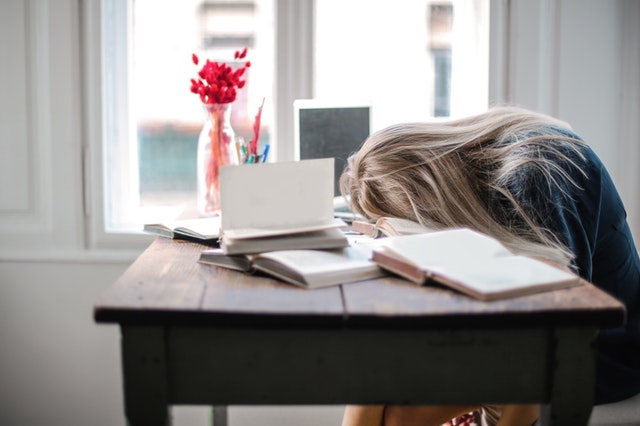
This is how my sleep pattern started out when I became depressed. I was never a super early riser, but I generally had a purpose. In the morning, I was usually excited to get up and get going. Sleeping in was a nice treat on the weekends. But I had a lot going on with my friends and couldn’t wait to get out the door. Once I woke up, I was alert and ready for my day.
All this changed when I struggled with depression. The worst part was that everything in my life started to suffer.
“There is only one thing people like that is good for them; a good night's sleep.”
- E. W. Howe
Not only was I tired all the time. I also felt that I missed out on a lot of life because I was too tired to focus and enjoy. Especially when I took a break from college, I could spend entire days in bed without giving it a second thought. That was a big clue that something was not right.

When restful sleep eludes us
For those of us who can’t sleep, it’s also easy to see the snowballing effect this can have on your body, mind and life in just a short time. You constantly feel like a walking zombie. But when it comes time to get some shut eye, you simply lay awake in frustration. It almost feels like the more you focus on sleeping the more elusive it becomes. Many systems in your body rely on sleep to function properly, from hormone regulation, to tissue regeneration, to organ detoxification.
Our entire body counts on rest to function properly. And without 7-9 hours of good sleep, we start to see consequences in brain function, digestion and general degeneration in the body. I’ve had a friend who battled with insomnia for 2 years and he looked like he aged 10 years in that time.
The effects can be scary, devastating and frustrating at the same time.
Although my depression started out with sleeping too much that changed when I took up my studies again. After a year of treatment, I felt strong enough to resume my university studies. Unfortunately, our town only offered the first year of university, so it meant I would have to leave home and move to the other end of the province. My family was very worried, but it was out of the question to break off my education.
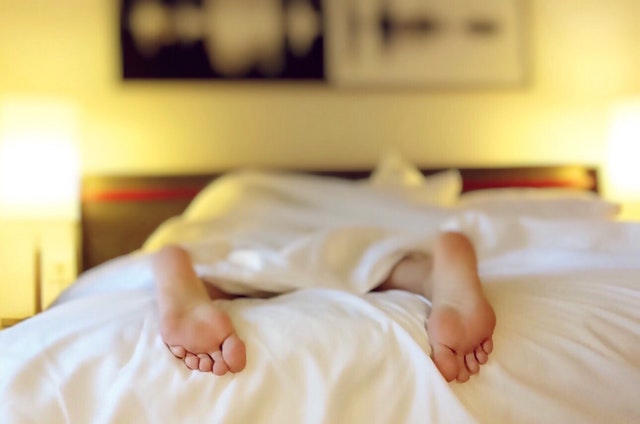
The stress of my studies hit me very hard. My oversleeping quickly turned to insomnia. I would lay awake most of the night, just to drag myself out of bed and to class in the morning, tired and disoriented. Being away from my familiar surroundings did not help the situation. My stress response was basically switched on continually and my body did not get a chance to rest and rest.

What will help me get restful sleep?
So if we know that our sleep problems can affect or contribute to depression or anxiety, what can be done to make it better? When it comes to sleep problems, it seems that it becomes a feedback loop that perpetuates itself. The less you sleep, the more you will have trouble sleeping. Or the more you sleep, the more you will have trouble staying awake.
Research shows that the key to interrupting this cycle might be a more indirect approach. By that I mean that the focus may be on optimizing the overall healing process of depression. This, in turn, will affect your sleeping patterns in a positive way.
I was quite lucky that as a university student I had access to counselling and therapy on campus. It took a long time to stabilize my sleeping patterns and there was no magic pill to make it all better. The problem was systemic and my depression definitely played a large part.
Some new healthy activities and patterns can help improve sleep right away. But for a holistic solution, addressing the depression directly will get to the root of the problem. This will take time and a variety of different methods, which are unique to each individual and their situation. It is a worthwhile and necessary journey where you will learn a lot about yourself.

Things to help with restful sleep
University was without doubt a time of new experiences. So far, I had considered my depression like an incurable disease that I needed medication for. Even though I did not like taking pills, I had not yet started to explore the many options that were available outside of medication. And to be fair, my doctor and therapist did not suggest much more on top of medicating and going to therapy.
Finding out what worked for my depression was a very long journey. And when I found things that helped with my depression, I also found they helped with my sleeping problems. This made me think that the two issues were definitely related in some way. It was not until much later that I learned about the mind-body connection and the stress response, which helped me find even more ways to heal.
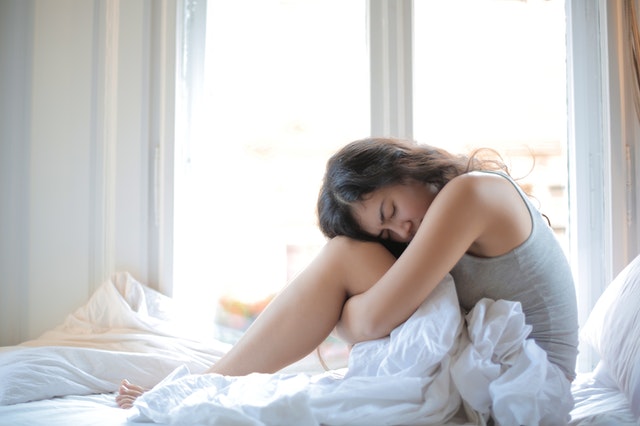
But, for starters, being exposed to thousands of students from all different cultures opened my eyes to the healing methods available. My multicultural friends encouraged me to try new things, some of which I had never even heard of. The university was a place that offered courses and activities beyond my usual horizon. This gave me the opportunity to try out things I would have normally not had access to.
Meditation and deep breathing exercises
My first encounter with meditation happened at university. Different clubs offered meditation circles at different times and for different purposes and I decided to give it a shot. This was my first experience with something that would change my life for the better. I had never heard of meditation before going to university. And it certainly was not mentioned as something I should try to break through my depression.
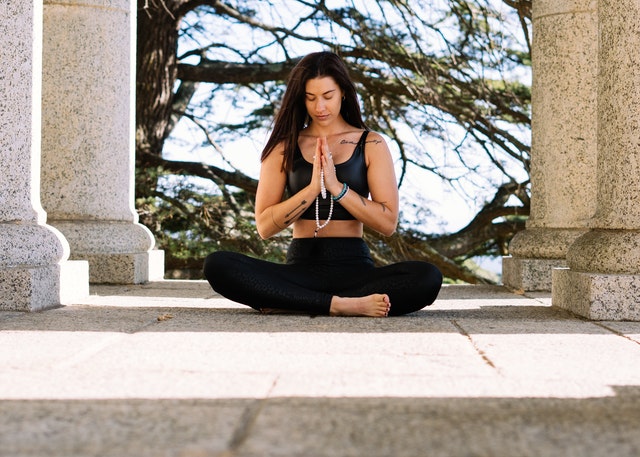
Meditation has become a big part of my life. The practice of centering and taking just a few minutes per day for myself has been integral to my healing. I never thought that self-care would be such an important thing. Meditation and deep breathing exercises can help with anxiety and depression, which in turn can help with sleep issues. I would recommend you start with a meditation circle or guided meditations, to get yourself used to practicing meditation regularly.
Hypnosis
Hypnosis was something else I tried while at university. At first, I tried hypnosis to help with my anxiety and panic attacks. Through this, I discovered the amazing effect hypnosis had on my depression and also my sleeping patterns. Many people fear hypnosis because of what they may have seen on TV or at staged events. I can only say that hypnosis has absolutely nothing to do with losing one’s free will.
Hypnosis allows for a very deep state of relaxation, during which the subconscious can be accessed directly. In this relaxed state, positive suggestions will be made to your subconscious. Without the interference of your conscious brain, these positive changes have a much greater chance of being implemented. This can work for anxiety, depression, and also a better sleep pattern.
Massage
I did not realize the positive benefits of massage until many years after university. Although I had tried massages during university, I found myself in pain and very uncomfortable afterward. My muscles were tense and the massage therapist was very forceful, which was not a good combination. Eventually, I just cancelled the massage appointments and chose a chiropractor instead.
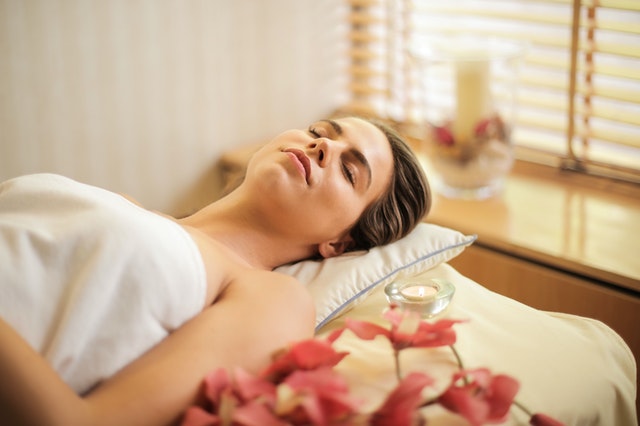
Some years later, I started suffering from migraines. Usually this would happen after long days at the computer. My chiropractor helped immensely, but he also suggested massage therapy alongside his treatments. At first, I was completely against massage because of the experience I had previously. But, after finally giving in, I found an amazing massage therapist. She was very gentle and in tune with my body. I noticed myself drifting off to sleep during the massage, as complete relaxation happened throughout my body.
Not only did massage help with my migraines, it also helped with my anxiety, which in turn helped with my sleep. For many years now I have had a massage every month. This is partly because of muscle strain from working on a computer every day. But the bigger part is the relaxation I experience, which helps me cope with daily stress, anxiety, and sleep disturbances.
Yoga
I also stumbled upon yoga in university. My very first encounter was hot yoga, which a friend of mine had told me about. She went to classes twice a week and always came out sweaty and exhausted. I spoke to her at length about these classes, but in the end I just did not feel like yoga was right for me. Yes, I was young and convinced I knew it all!
Some years later, my sister went to Thailand and India to complete her yoga teacher certificate. I was even more confused as to why someone would want to waste their time and money becoming a yoga teacher. Oh boy, was I in for a wake up call. After she returned, I actually learned a little bit about yoga and she has been putting routines together for me to help with anxiety, depression, and sleep ever since. Had I not been so narrow-minded, I might have been able to experience these benefits much sooner 😉
You don’t have to contort yourself into impossible poses and practice yoga for hours every day to reap the benefits. Like meditation, yoga focuses on the breath. It is a great way to keep strengthening your mind-body connection. It also provides you with some time to just focus on yourself. Even if you have never practiced yoga before, you can start at any time and see if it helps with your sleep issues.
Tai chi
And finally, at university I also experienced Tai chi. You may have seen people at the park or on the beach standing in poses and waving their arms about. And you may have wondered what the heck they are doing. Tai chi is actually a Chinese martial art; however, you can practice it for its meditative health benefits rather than the defensive skills. The movements help with anxiety and stress management, which in turn can help with your sleep issues.
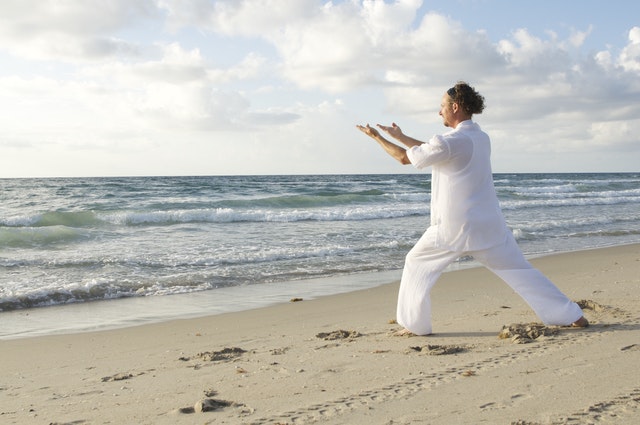
I have to be honest in that I only took part in a handful of Tai chi sessions. Unfortunately, my days were packed with studies and I ended up choosing meditation, hypnosis, and yoga because they were available on campus. But, in those few sessions I felt a connection, like I do with meditation and yoga. I know many people who have had great experiences with Tai chi and practice it regularly. Maybe if yoga is not quite your thing, you might want to try some Tai chi classes instead to help with restful sleep.

Sleep hygiene for restful sleep
In addition to the activities above, adjusting your habits around sleep can also help you normalize your sleep patterns. This is called “sleep hygiene”. Here are some tips that can help with creating sleep routines that support restful sleep. Now, I realize that some people, especially shift workers, may not have the option of creating sleep routines. But, you may be able to try some of the suggestions, combined with some of the physical activities to help you.

The Takeaway
I ignored my sleep problems for a very long time and nothing good came from it. So, if you notice your sleep patterns being disrupted and simple self-help tips do not make a difference, it might be a good idea to get some outside input. Never feel ashamed to ask for help from your doctor or therapist. Restful sleep is too important of a function, to ignore the dire impact that oversleeping or undersleeping can have on your mind and body.
One thing you can do is check with your doctor to rule out any underlying conditions for insomnia and hypersomnia. For example, sleep apnea can greatly impact the quality of your sleep. Especially, if there is nothing else apparently wrong, getting a medical check might be your first course of action. This will give you peace of mind that nothing physical was missed.
And then of course, you should consider your environment. Are there particular stressors at work or at home? Did you lose your job or are you going through a separation? Anything that causes stress over a prolonged period of time can certainly affect your sleep patterns. In those cases, you may choose to speak with a therapist about your situation. You can also use the suggestions in this post alongside any treatment to help you.

You may be dealing with anxiety, depression, PTSD, grief, chronic pain, or other conditions that cause a disruption in sleep patterns. It goes without saying that you will likely need outside help to address these in the long term. Practicing some of the activities in this post and doing sleep hygiene can be very beneficial, but you may feel that you need extra help to address these underlying issues.
Happiness, clarity, and restful sleep
Sleep is so important because it can affect our bodies, minds, and everything around us. Be sure to take care of yourself and monitor your sleep patterns. It happens that we lay awake once in a while when we face troubling times in life. That’s to be expected, as we deal with stress. But when this becomes your normal, it is important to find a solution.
Above all, have patience with yourself.
It seems that with sleep problems, the more you push, the more anxiety you create, and the more your sleep patterns will be disrupted. In almost all cases, sleep disruptions have an underlying cause. This can be physical or mental, but there is generally something that causes you to oversleep or under-sleep.
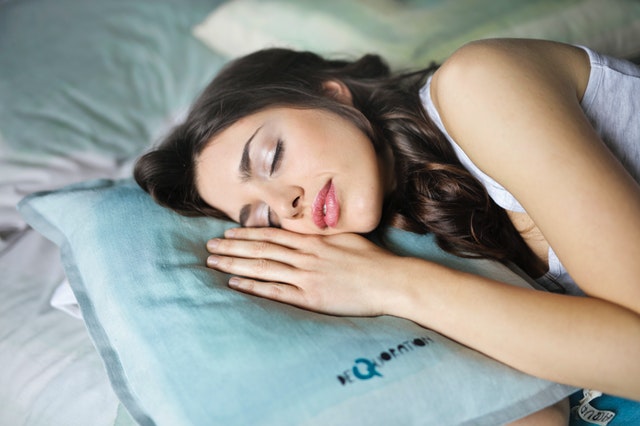
Take the time to discover what is happening to cause your sleep problems. Taking some sleeping pills may fix the issue for a few nights, but the actual cause will go untreated. My best friend was diagnosed with sleep apnea and bought a mask and a machine. He had been depressed for years and told me that he felt like a new person after finally getting proper sleep. His mental health greatly improved. He was able to make decisions and be more productive at work. He noticed a huge change in his attitude and outlook on life and if positively impacted his relationships. So, don’t underestimate the power of restful sleep.
Yes, it can truly be a life-changing process to get restful sleep. Your happiness and health may depend on it!
Resources
Sources
https://adaa.org/learn-from-us/from-the-experts/blog-posts/depression-and-sleep-problems-how-improve-without
https://www.healthline.com/health/depression/fatigue
